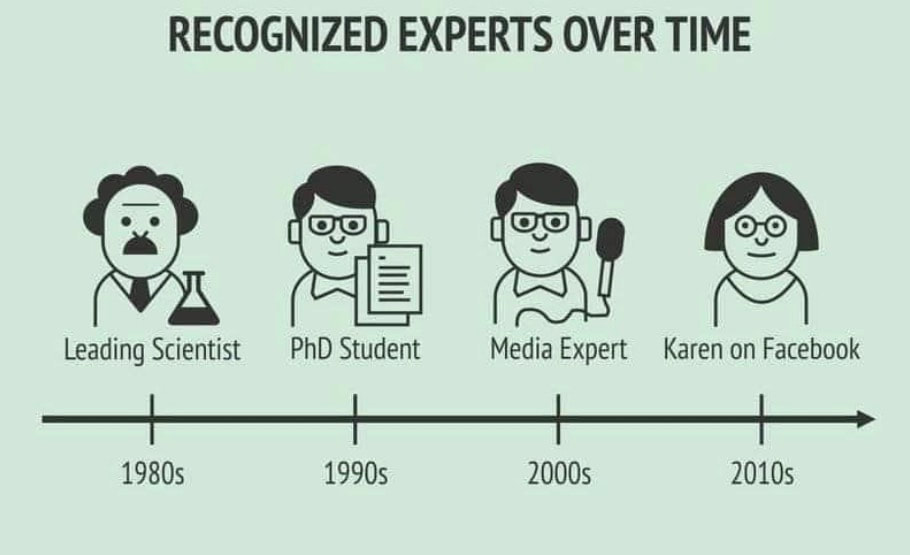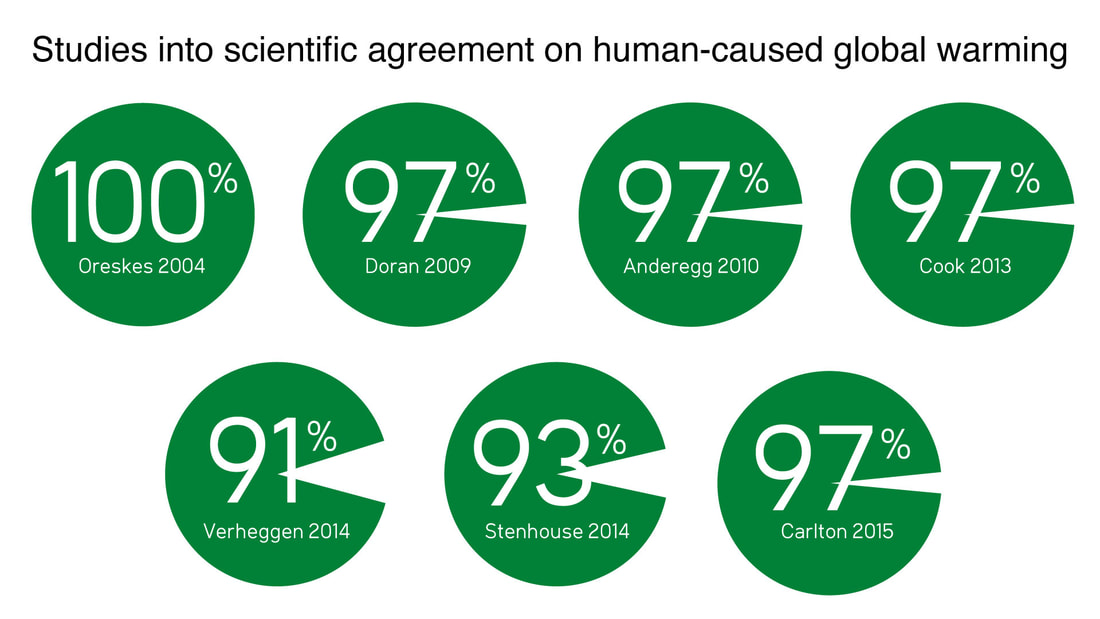|
In the previous post, I discussed the importance of evidence and how scientists gather that evidence. We now examine the author. We are bombarded by the opinions of others. The rise of social media has allowed for much greater ability to share one’s views and opinions and to disseminate them. In many cases we can filter truth from fiction if we ourselves are fairly knowledgeable on the subject. Most of us would ignore the ramblings of those who believe in a flat earth, but what if you are not completely conversant on the topic? Add to the fact that many of the more ‘discussed’ issues, such as climate change, are quite complex, at best, we have only a superficial understanding of the topics. So we therefore rely on the authority of the author of the information. So how are we to assess if the author is qualified on the subject at hand? The author or presenter of the information received must meet certain criteria if we are to judge the veracity of the information they give. 1. They must be experts in the field of discussion. Clearly we would not accept an opinion delivered by a blogger who knows little about how science works, let alone medicine, when discussing medical treatments. Take for example Gwyneth Paltrow or Peter Evans who talk about food that “detoxes” you when we have a perfectly good set of kidneys and a liver that that do the job. But what about a person who is a doctor? They may know about their field but not necessarily about another. Would you trust a person with a PhD to give good advice about specific medicines, if their field is education? I think not. Nor would you implicitly trust a medical doctor to provide advice on engineering matters. Unfortunately many ‘communicators of opinion’ use their titles to their advantage to persuade their readers. For example, you may read from certain scientists who have reservations on climate change or vaccination, when a little research shows that their expertise is neither in climate science nor immunology.  2. Authors need to be free from biases. In the 1950’s many doctors and scientists argued that smoking wasn’t that bad. Ignore the fact that they were paid by tobacco companies to say that. In this case they were paid to promote smoking, and thus benefited from the promotion. It introduced a bias in their opinion. However, it can be more subtle. Energy Research Institutes may talk about clean coal, when closer inspection shows that contributors to their research includes mining companies and oil companies. So when we examine the authors’ credentials, we also need to examine any links to things that may result in bias. It doesn’t mean we outright reject their statements, but it does cast concern that needs to be considered. 3. You need accuracy. But what is meant by accuracy? Like the evidence, that means you need a lot of scientists saying the same thing.To explain, let’s look at an example. Say you have an illness and are unsure of the best course of action. You see your doctor who says, “You only need bed rest.” You are unsure, so you seek a second opinion, and they say, “you need to take this medication but you may have some side effects.” But you are still unsure. So you see 10 more doctors, who all say you should take the medication. What will you choose? The fact that 10 more doctors agree should lead you to follow their opinion. Similarly in science, a research paper may make a particular claim. Further research shows that there are 100’s of other papers which agree with that claim, whereas only 2-3 which don’t. Irrespective of the qualifications of the authors that disagree, and they may have adequate knowledge of the subject, the fact that there are few in number, should be pause for concern. 4. Lastly, the ‘age’ of the authors' statements need to be considered.
If a paper makes certain conclusions in a paper that was written a long time ago, and new evidence comes to light that contradicts that conclusion, then the original conclusions may not be correct. Sometimes the time delay may not be long. During the COVID pandemic, mask wearing was not particularly encouraged at the start of the outbreak by health authorities. But as scientific evidence poured in that showed its benefit, the health authorities strongly encouraged mask wearing and governments started mandating it. The point is: as evidence becomes available, old conclusions may become invalid and this should not be relied upon. As a result, researchers and students are encouraged to ensure they research papers that are recent, that is, less the 10 years old So in summary, when researching a certain claim, ensure that the author has the qualifications, are free from bias, and that their views are supported widely in the scientific community. My third installment will examine how science is communicated and often miscommunicated
1 Comment
16/8/2022 18:26:05
Thank you for sharing informative content. It means a lot to me hope you do more articles to post.
Reply
Leave a Reply. |
AuthorTeacher, YouTuber, Archives
November 2021
Categories
All
|
|
© COPYRIGHT 2024.
ALL RIGHTS RESERVED. |


 RSS Feed
RSS Feed
